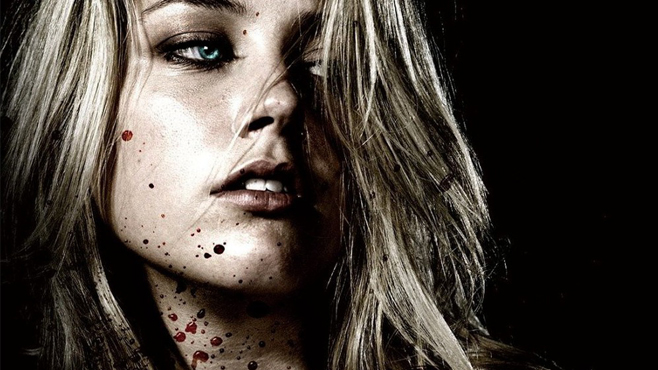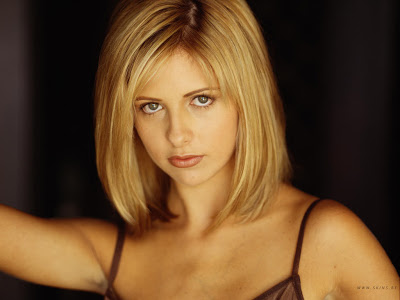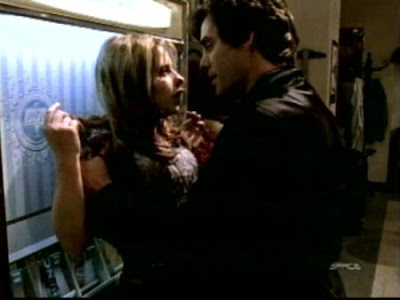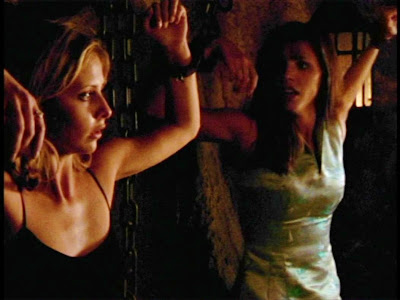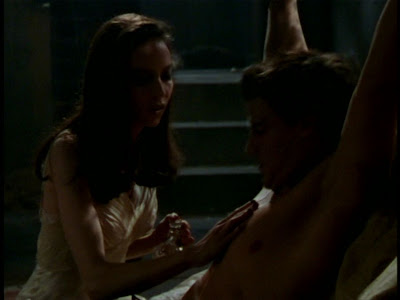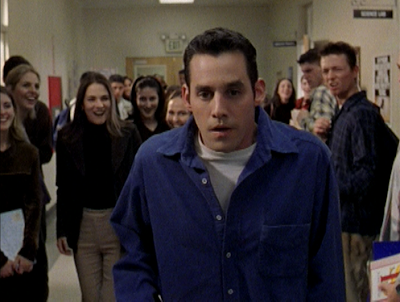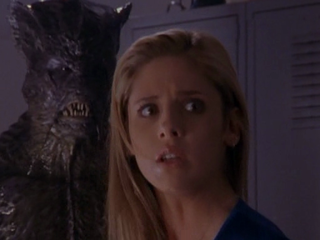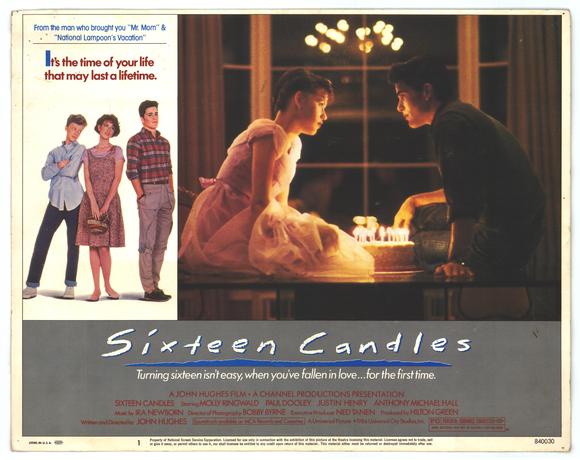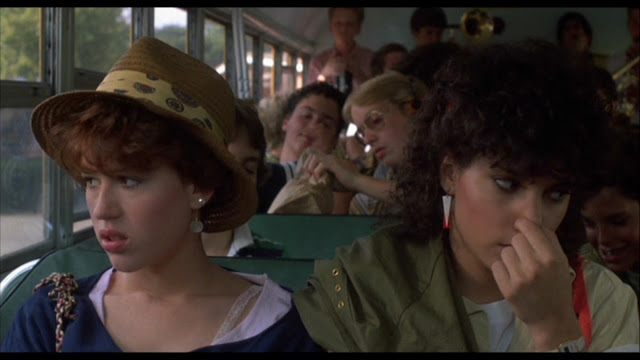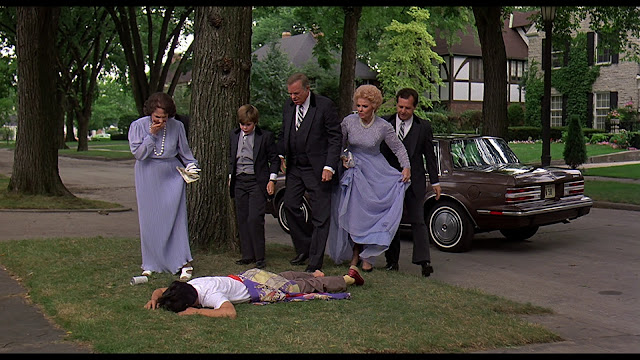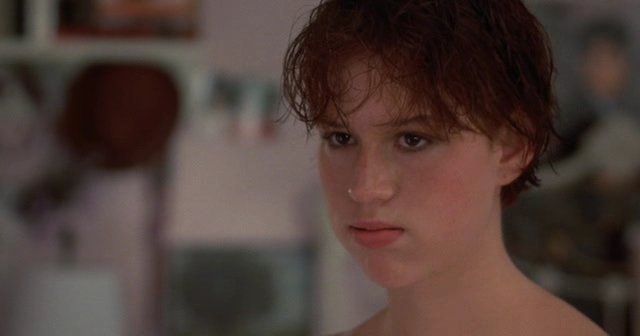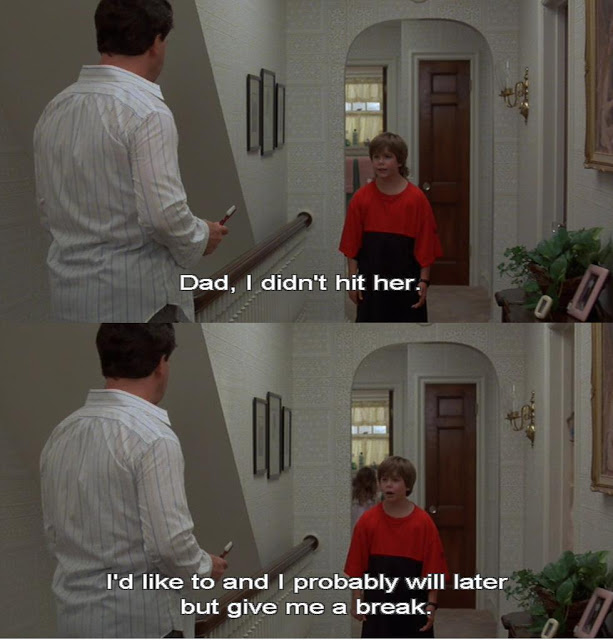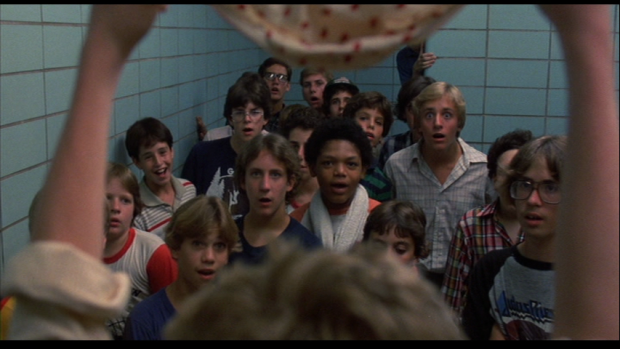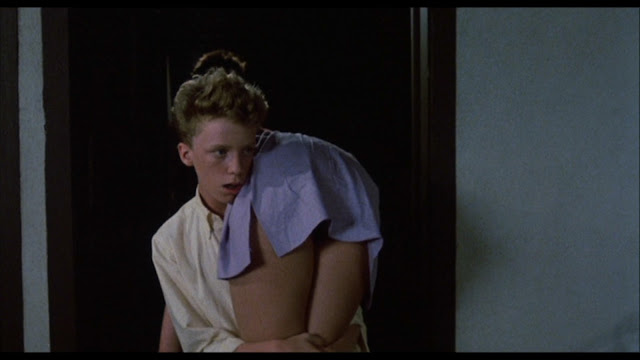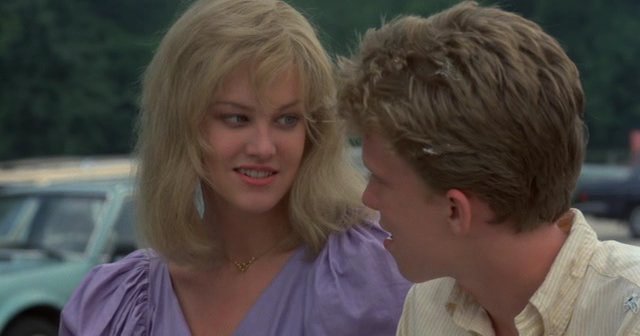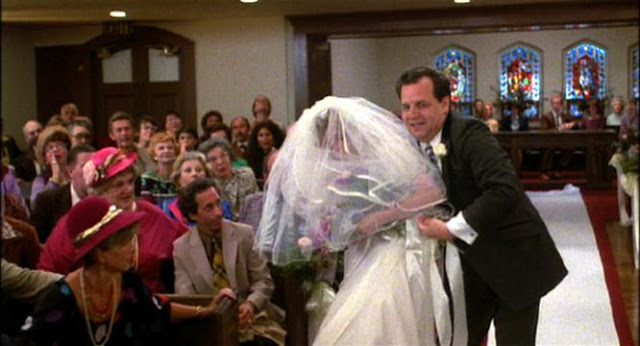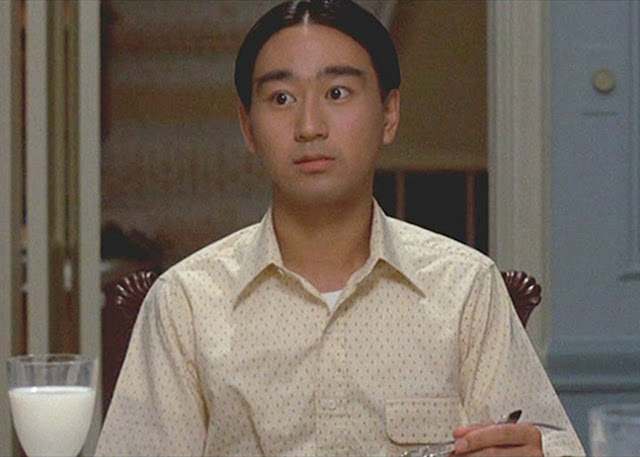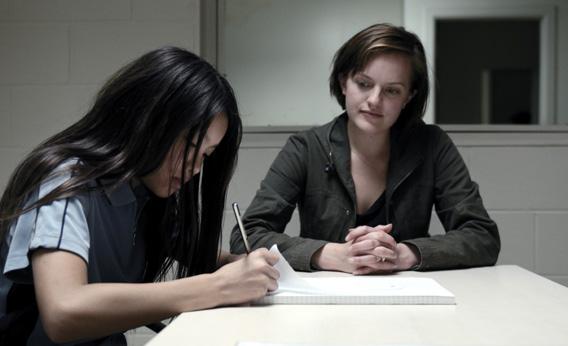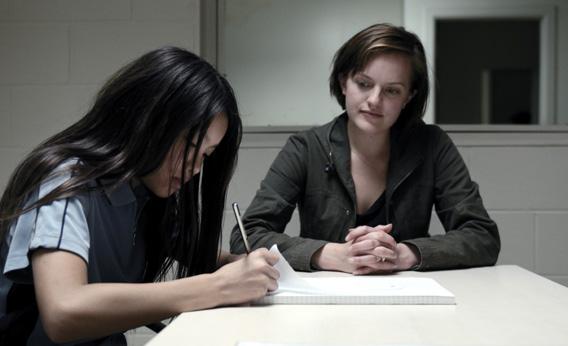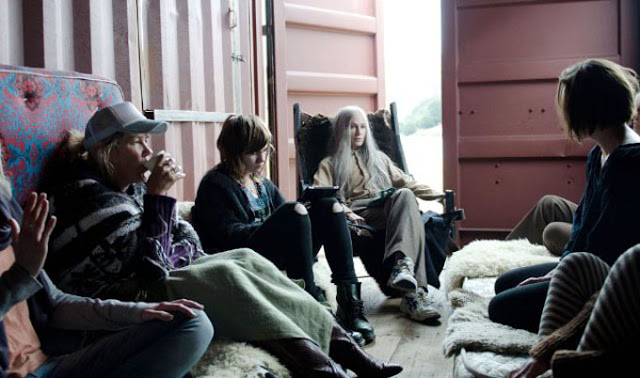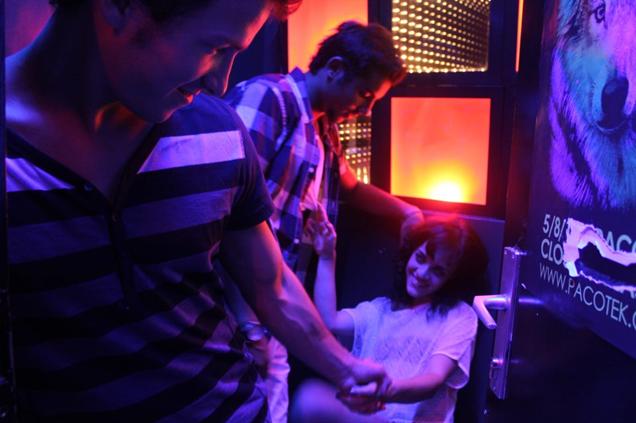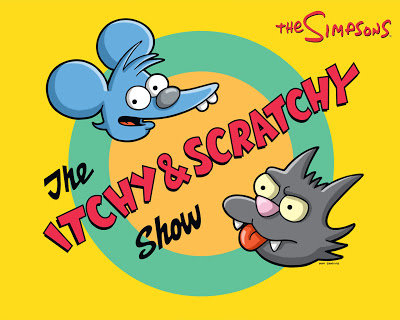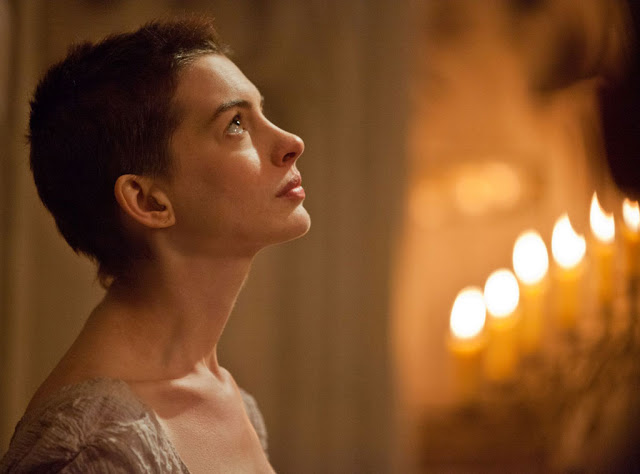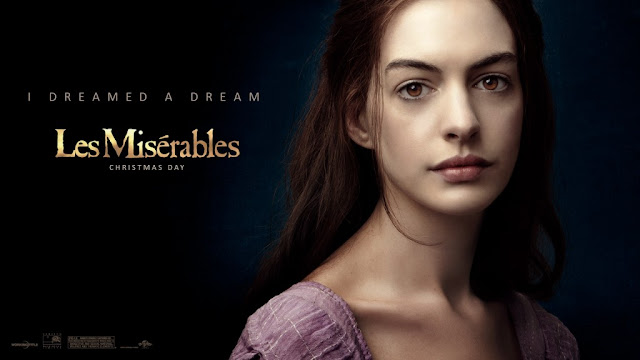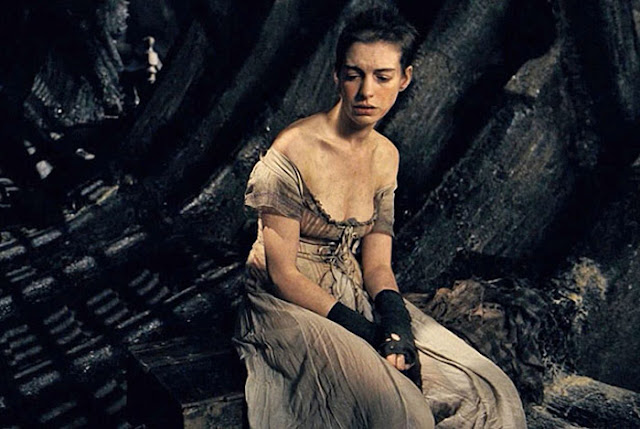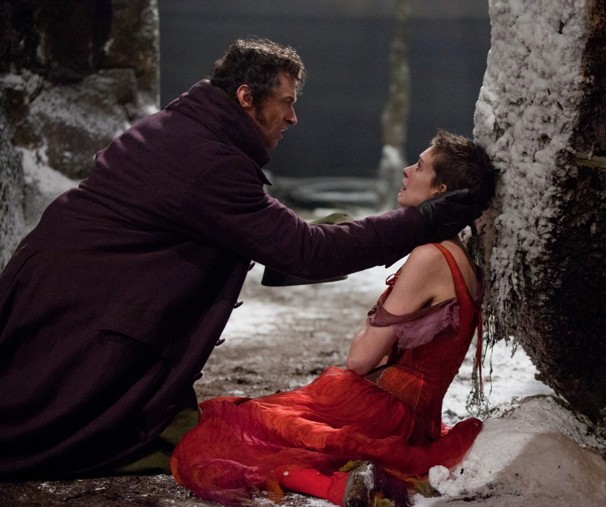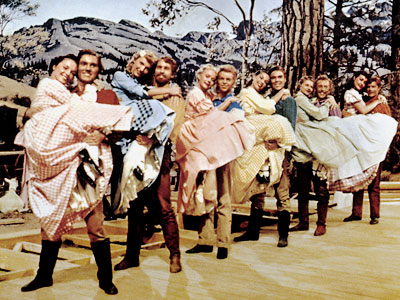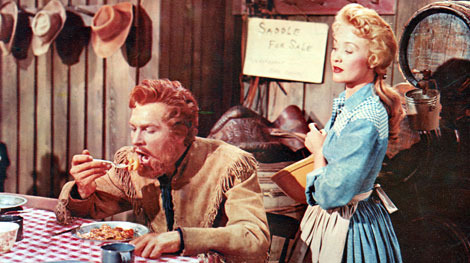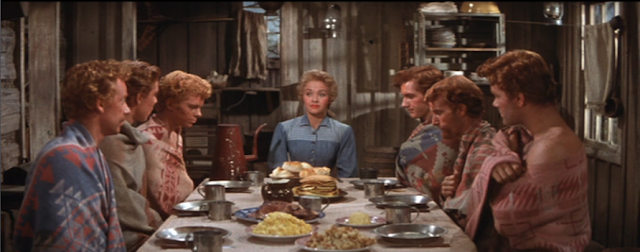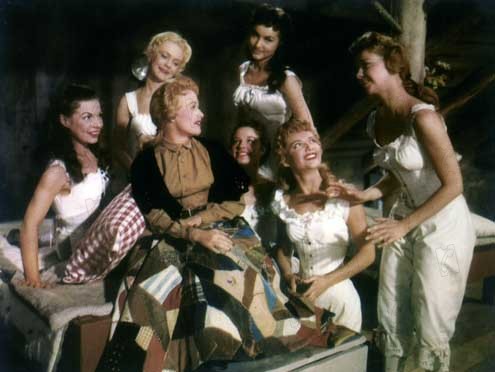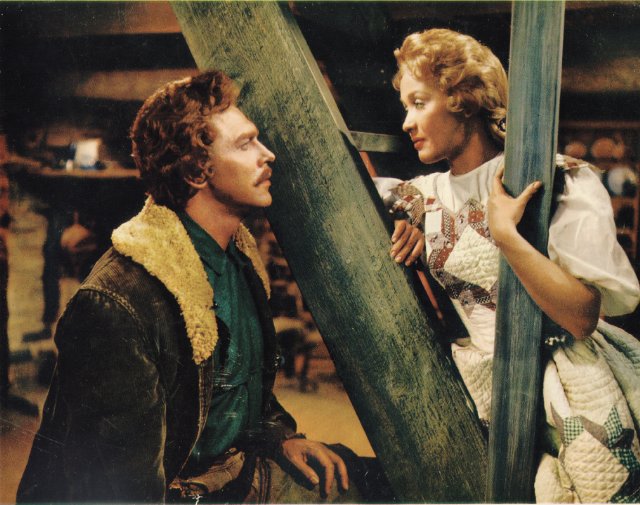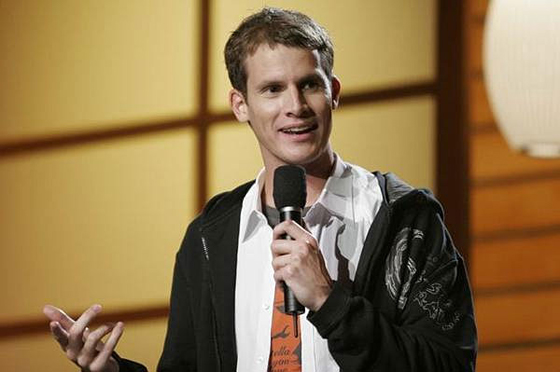Written (with spoilers) by Stephanie Rogers.
All the Boys Love Mandy Lane attempts to send a feminist message. Unfortunately, that message spontaneously combusts at the end of the film. It gets so much right, though, especially in its depiction of sexual harassment, catcalling, stalking, and society’s obsession with women who embrace virginity versus women who embrace their sexuality. In fact, all these boys love Mandy Lane (Amber Heard) because they see her as a conquest, a beautiful, “pure” teenage girl who functions as a prize, a trophy. In essence, they believe that the boy who finally gets to sleep with Mandy Lane will also get those coveted bragging rights, a boost to his masculinity cred—and patriarchy loves nothing more than requiring men to constantly reaffirm their manhood to their bros. For instance, when they talk about Mandy Lane, they say things like, “I’ve got first dibs,” which effectively mimics the locker room talk we’ve lately come to associate with fraternity emails showcasing sexual assault tips.
Another viewer could easily dismiss all this as harmless “joking,” but thankfully, the film allows us to experience things through Mandy’s viewpoint. We see her pull away from boys who try to kiss her, who pull the strap of her shirt down, who put their hands in her hair. We watch her spin around when she realizes someone outside her window is watching her change her clothes. She appears uncomfortable most of the time, as if she feels somewhat responsible for the actions of the boys around her. I imagine many women can identify too closely with Mandy Lane, asking themselves, “Am I dressing too provocatively? Is this harassment entirely my fault?” It’s the narrative of rape culture, one that both men and women have come to internalize: if a woman doesn’t want to be noticed, then she shouldn’t walk around looking so hot all the time.
All the Boys Love Mandy Lane manages to convey that toxic rape culture narrative in subtle ways, like when she’s alone with a boy who says, “Can I hold your hand? Can I kiss you?” and she turns her head to let him kiss her cheek. I felt my stomach turn during this scene; she was alone with a boy who clearly had sexual intentions, and Mandy Lane’s cheek move seemed like an appeasement, like a way to delay any unwanted sexual contact without making him angry. Unfortunately, it’s also a move that men often read as coy, as “teasing” … and it puts women in another double bind: she doesn’t want to piss him off and risk him potentially hurting her, but she also doesn’t want to do anything sexual with him. This kind of behavior gets women labeled “teases” all the time, and it’s a way to take responsibility away from men who believe, incorrectly, that the slightest amount of sexual contact—kissing, hand holding—means a woman automatically wants to take things further.
The director (Jonathan Levine) balances Mandy Lane-as-Madonna by including two sexually active high school girls-as-Whores: Marlin (Melissa Price) and Chloe (Whitney Able), who’ve both had some sort of sexual contact with the three boys in their clique—Bird, Red, and Jake—at least enough to point out who has the smallest penis in the group. Marlin, Chloe, and the three bros decide to spend a weekend at Red’s ranch, and they invite Mandy along. For some reason, Mandy agrees to go (under the guise of making new friends), but it isn’t clear until the end of the film why Mandy truly accepts the invitation. For whatever reason, All the Boys Love Mandy Lane turns into a lightweight home invasion massacre out of nowhere, but it still makes some thoughtful commentary on bodysnarking and teen sexuality before ruining itself with conventional horror movie tropes.
Interestingly, the only locker room talk happens with the women after their respective cheerleading practice (Marlin and Chloe) and track workout (Mandy Lane, who literally runs away from a boy during her run, her former friend Emmet). Chloe calls Marlin “chubby” when Marlin shows off her new bellybutton ring to which Marlin responds, “I’m not fat.” Mandy watches these interactions almost always in silence as if making a mental note for herself. The bodysnarking happens again between Chloe and Marlin, once they’re ranch bound, during a trip to the bathroom at a rest stop; Marlin says to Chloe, “You really need to trim that. It’s like Sherwood’s Forest down there.” Chloe gives her a “whatever” look, but later, we find Chloe trimming her pubic hair on the toilet at the ranch. Again, Mandy Lane never participates in the bodysnarking but listens and watches quietly instead.
Once they hit the ranch, though, the film begins to unravel. It goes way too far in its Virgin/Whore depiction, painting both Chloe and Marlin as sex-crazed and shallow. (Marlin gives a hand job and a blowjob in the span of 20 minutes but not without flashing her breasts to a man at the rest stop, too, and Chloe won’t stop talking about banging the local ranch hand, Garth.) Mandy Lane, on the other hand, watches quietly, makes no judgments or accusations, and appears Madonna-esque and mysterious, almost too sticky sweet. We know something isn’t right here, and I thought at first Mandy Lane represented the virginal, Say No to Drugs, Final Girl from conventional horror films.
When one of the boys steals a fuse and shuts off all the lights at the ranch, Mandy Lane gets stuck fending off another boy in the dark, this time Jake, who leans in repeatedly to kiss her. Interestingly, Mandy Lane almost never says “no,” but her body language communicates how little she wants to do with Jake. This narrative suggests, importantly, that some men and boys think nothing of continuing to push and push until a woman fiercely says “no.” Again, that rape culture narrative plays out here, and because the film operates from Mandy Lane’s perspective, the audience feels bad for her and (hopefully) feels less bad for, and even angry with, the boys for making her feel so unsafe.
Honestly, the film could’ve ended for me somewhere around there as an astute commentary on how rape culture impacts the actions of both men and women. It could’ve ended as an astute commentary on how bullying and bodysnarking (especially by other women) impacts a woman’s self-esteem. But the writer (Jacob Forman) and director decided to take All the Boys Love Mandy Lane in a boring direction that tried way too hard for a shock ending. The body count racks up. Both the men and the women die, taking away any potential interpretation that the killer is merely punishing the men for their actions toward the women. Instead, the deaths of Chloe and Marlin—the Whores—suggest that anyone with a sexual appetite at all deserves punishment.
Other viewers might not need their fun horror films to carry A Message, but this one went, for me, from an epic feminist masterpiece to mundane, sloppy, and forced. Ultimately, Mandy Lane turns out to be way less innocent than she appears, and the film makes the audience hate her. And when a film makes the audience hate the character who represents the film’s important themes—the insidiousness of rape culture, for instance—then that film fails tremendously to say much of anything.
Stephanie Rogers lives in Brooklyn, New York, where she sometimes watches entire seasons of television in one sitting.
